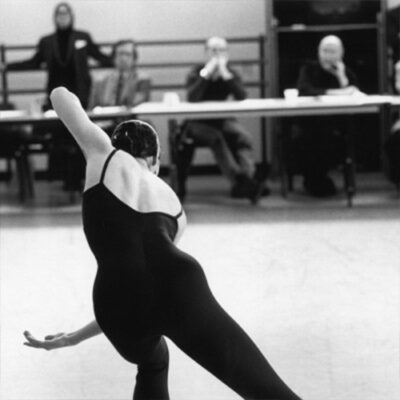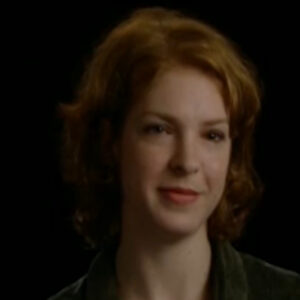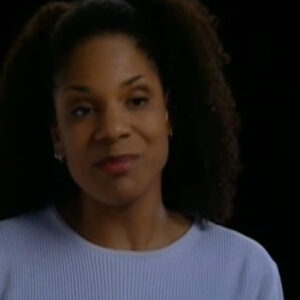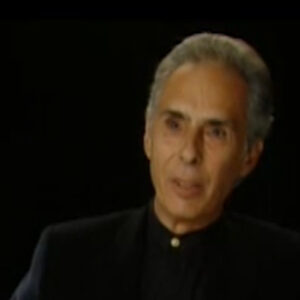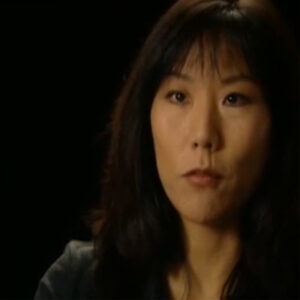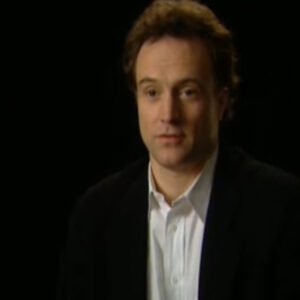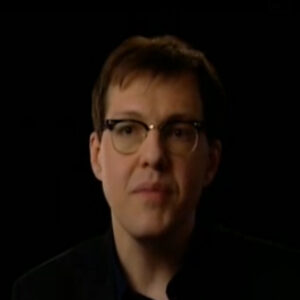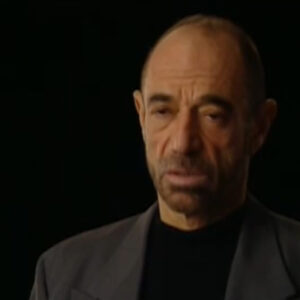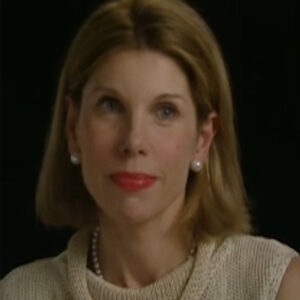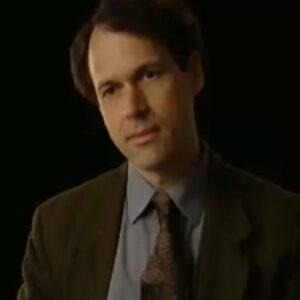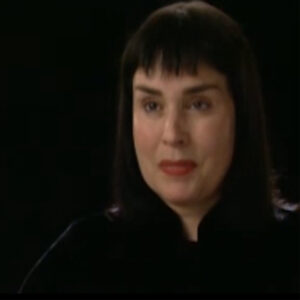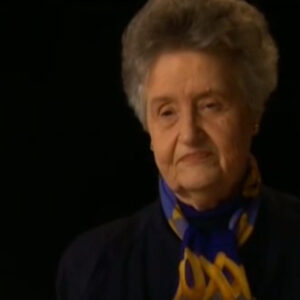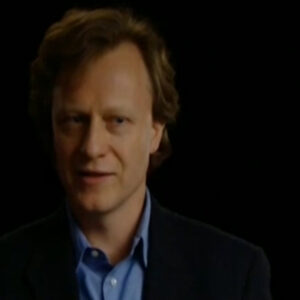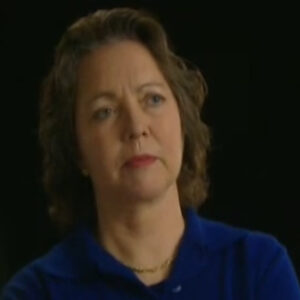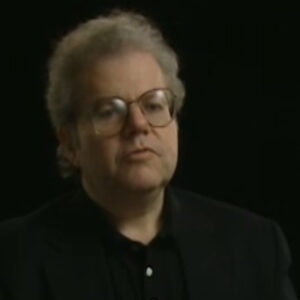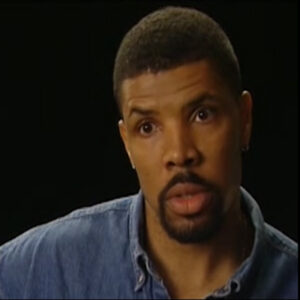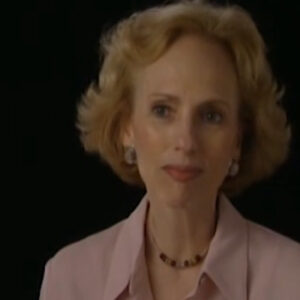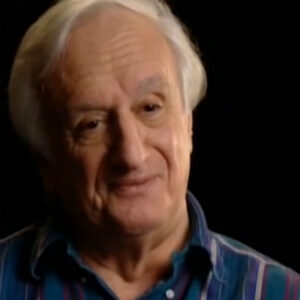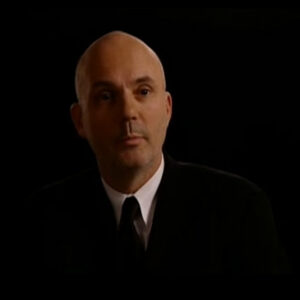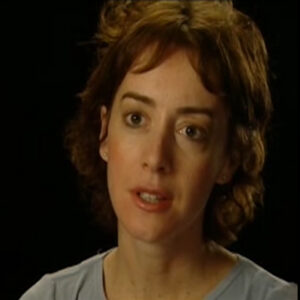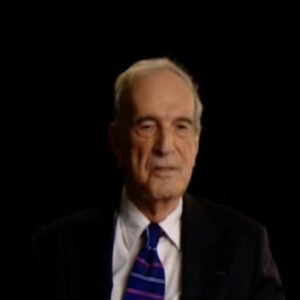Speaker Whoever was on that first journey to get this first crazy. Yeah. What were they see when they saw?
Speaker Oh, I was you know, it was a little girl from Miami, Florida. And I was wearing polyester dresses with twiggy eyelashes. And I came up to New York on practically a lark because someone said they’re starting a new department at this Juilliard Juilliard School.
Speaker And I just came up here really by myself and went and auditioned up at the old school up on Riverside Drive. I remember that I did two pieces for them. I did. And Elaine may play called Not Enough Rope that I had done in college that I thought might be good for them because it had some comedy in it. And then I had planned to do Jocasta from Adipocytes. I thought there’d be no serious piece for this group. And that morning I changed my mind and decided to do Lady Macbeth, which I had never memorized before. And I just knew it because I had done the play the summer before and I’d watched the performers and I absorbed every word of the play. So I just basically threw quiet caution to the winds and did it. I just went in and did it. And I remember crushing the letter and throwing it in the air. And they said later that it was the wildest Lady Macbeth had ever seen. And I imagined that my entire audition was pretty wild. But I’ve always been like that. I’ve always thrown myself totally into something and people have to pry me away from it.
Speaker And so you’re. So you were sitting in who?
Speaker Well, I had no idea because it was a friend who told me about the drama department. I had no idea. We none of us knew who John Houseman and Michelle Santini and Michael Kahn were at that time. And I had a I went in and I think I was fearless. I had no nothing to gauge my you know, what I should be afraid of.
Speaker But I did that in front of these great men of the theater scene and directed Katharine Hepburn and and worked with Laurence Olivier.
Speaker And, you know, I mean, if I go back and think about how nervous I should have been, but I wasn’t you know, I remember throwing myself onto the stage. They gave us an improv. And I had to pretend I was dealing with some mud. And they said, just do it comes naturally.
Speaker And I remember throwing myself onto the ground and rolling in the mud and just rubbing it all over myself. And it was an old stage. And I got splinters all over myself, but I wasn’t thinking of the consequences at the time. So fill this role.
Speaker I mean, abandoned you because I knew that husband is talking about or people would talk about, like the wild, crazy stuff that house went for you.
Speaker Yeah. I think you must’ve been like fed fed right into that. Yeah. He does like that. He likes wild spirit or he liked wild spirits. I always think it’s like because I somehow always think of him watching me. I don’t think it lets anything go. You know, we’re all under his eye about you.
Speaker You didn’t know his history.
Speaker No, I.
Speaker I did, actually. When when you told me him initially, you could use his name as my voice.
Speaker I see the mystery man. So talking about John Houseman.
Speaker You know, my first impression. I didn’t even know when the day that he walked in, I, I. I guess I met met him at my audition, but I didn’t remember meeting him. And you look around. Who’s the important person? And then he just started talking and he didn’t. Never looked at anyone directly when he first met them. He always looked up into the air. He sort of slapped aside while he talked because he was nervous, too, and. Yeah. Tell me some more. What else about John?
Speaker Well, it’s funny what your thoughts were about him. How did he. What were the first thing you say? The first years he let me lead you to believe once you got there that this was going to be what was right.
Speaker Well, when John had us all together in the sort of this huge room up at International. He he said, you’re all the stars of your individual drama departments. And he also told us that eventually one or the other of us. He said, look to your right, look to your left, one or the other of one of the two of you will be missing. And by the end of this year, they had planned to do cuts in the program because I don’t think that they ever met the program to be for just anyone. They wanted the program to be for people could finish it. There was a lot of experimental, a lot of experimental feel in those first days at Juilliard. And we had classes that were came and went and in a very short amount of time. So they were going to be experimenting with us. But they wanted finishers. They wanted people who had stamina. I felt that from the first. And I knew that, you know, coming up from Florida that we were going to have a tough time staying there, you know, applying yourself to a really shutting out everything in your life off just to do a program. I mean, you sort of take the veil.
Speaker What are you had come up for the audition. But what was it like working in the 60s, coming to New York in the 60s?
Speaker Well, for me, it was like going down the garden path. I had no nothing in my life that would prepare me for what if anybody go into New York for the first time is kind of overwhelmed by the buildings. But here you were in sort of a protected environment. And it was it was almost like a little pressure cooker, because this this group of people who would spend all day together would then explode onto the city and go out and sort of gather all the danger and, you know, trouble you could get into and then bring it back to the to John husband and let him deal with it. More than once. We got had group meetings where he’d call us up to the office and and tell us we were vile people and threatened to throw us all out of school. My group was was like that. They were they were they were crazy.
Speaker They were great. You know what?
Speaker What kind of you want to study classical training? Or maybe that’s what you got. You know, the classical training.
Speaker When I came to New York, I didn’t know that I wanted to do classical training. I knew that I wanted training for the theater. I knew that I wanted to be on the stage. I had no idea that I was about to take on the mantle of a tradition. I had no idea. When I came to New York, I thought, oh, I’ll be an actress. I had a sort of a germ of an idea. But through John Houseman and through John, through Michelle’s son Danny and his book, things began to fall into focus. As far as the sort of the bigger picture of what I was about to, you know, attempt what road I was about to travel. And the idea of becoming a classical actress is something that I still continue to add to. I don’t think my training and the ideas that I learned there have fully come to fruition. I think they keep coming. I think I keep learning and I keep remembering things that I learned there that John said or Michelle said or I heard somebody say that Michelle said or Syria, Michelle’s wife said, and and they’ll I will incorporate it into what I’m doing, you know, because I’ve done so many classical plays and my whole body of work has been practically an 18th century cause it’s a 17th century cause it’s always Jews that no one’s seen my ankles in years, you know. So there’s always something there for me to learn. And and and because I also teach, I also try to impart what I’ve learned to other people. And that’s one of the other great traditions of the school. Hanzo is, is they want you to take what you’ve learned and don’t keep it. Don’t. Don’t. Just think so. Thank you very much. And go on your way. But give it back. Keep giving it back, because otherwise there will be no theatre. If if the tradition doesn’t continue. So, I mean, that’s that’s part of what happened to me in the classical vein at Juilliard.
Speaker What you see, these little kinds of things that the House would say to you or Michelle would say to you, Yeah. Dare I say, what are these? What are these pearls of wisdom?
Speaker Well, I think that, you know, it’s funny. I mean, we’re going back so many years now. Sometimes the things that I think I heard Michelle say, I may have you know, I might have heard from his book, but I’m not so sure that he didn’t speak what he said from his book. You know, his ideas of style are are famous and.
Speaker And I think about you know, I’m trying to remember specifically about about reality, about the realism and the text, about the kind of theater that he liked, which was he didn’t want theater to be stylized affair where people were. The text was way in the corner. He wanted it to be real. So he always felt that style was really the truth of of a of a play. And so we didn’t think of him as being, you know, phonier high blown, which is what people think of style, stylized plays. Now a restoration plays. Now they think it’s phony. But he never wanted it to be a phony affair. And John was just you know, John was like my spiritual guide. I mean, he he he had this ability of calling you up in the morning and saying something to devastate you for the rest of the day. But it was so right. And you better do it. I remember once he called me up at 5:00 in the morning and told me that I was behaving like a middle aged engineer doing a check of place. Why you Googling all the time?
Speaker And I thought, oh, I better stop giggling, stop acting like a middle aged. You know, I started to get it right after that, I think.
Speaker But, you know, there was also other things they told me. He once famously said to me and I said, John, how can I make my part better? I was doing our town. And he said, You must read the play.
Speaker I thought, Oh, okay, I’ll do that.
Speaker Yes, sir.
Speaker He ships this to me, calling you at five o’clock in the morning.
Speaker Well, I think that because we were all in this together that he did not think of, you know, time was what we were we were spending this this four year period together. Let’s use it. Whether, you know, if he got up at 5:00, that’s why he’d call me at 5:00, if we’d stay there until we got it right. You know, it wasn’t like we had it was separated from us.
Speaker We were living the experience of some of our training. Now, this training that we had came from London. It was a combination of French and an English theater. And it it those people took it on us as like journeyman.
Speaker You didn’t think, oh, I’m going to go to theatre school and I’m going to sit around and I’m going to buy fancy shoes down in the village. And later on we’ll meet for a movie and I’ll go into some classes. And it was you were living your experience at Juilliard. You lived every single day toward the goal of becoming a honed actor, which was a. Was it an actor that had equipment? And to get that equipment, you had to work on it constantly. I know most of us wandered the streets with little mirrors in our hands in those early days because Edith Skinner told us that you must carry your teacher everywhere. And so we were always looking at our mouths and in them these mirrors so we would be able to pronounce the words correctly. So we never left it, you know.
Speaker Did I get off on a tangent again at all?
Speaker I mean, I think that there’s a there’s a, you know, there that there’s a quality that you brought up that other people. That’s right. Yeah. Of being in it together. Now, of course, the program education is far more defined. But there’s something about that. That’s. Of that process, but also that unbelievable kind of story. Yes, it must have been really exciting.
Speaker Yes, because we wanted to make theater. And one of the precepts that Michele Sundanese had was that you don’t act with a group of people you don’t know. You act with people that you do know that that brings freedom. And so we were a company and we spent every moment together.
Speaker And for better or for worse. I mean, we were you know, we were siblings. We were we were we lived and breathed each other. But it was also the possibility of very, very interesting, spontaneous, extraordinary theater existed.
Speaker And in my class, it happened that that something happened. A seed grew from that that combination of energies. And, you know, that none of us could take responsibility for it existed on its own. It was this combustion. It was a very exciting time being there in that first year.
Speaker People that were in that group with you. We actually spoke yesterday with Steve Henderson.
Speaker All heart. I know, because. Because I was there with him. Yes. Yeah. He was an extraordinary passionate. His name’s Steven Anderson, an extraordinary passionate man that they loved that they he was one of the two character men that they brought into that and into our class. David Trem was the other one. I don’t know if Steven did the the play the Adipocytes project with Michelle or not, but I think he did the sort of heavy’s, you know, John Housman loved the heavies.
Speaker And look at Orson Welles. I mean, he wanted these incredible explosive energies, you know. And so he had he had Steven and he had David SRAM to fulfill those.
Speaker And then he had these incredible blonde women, Kathleen Quinn and the Chandler and. And who else? Oh, Deborah Oliver. Right. You know, I don’t know where she is. And then there was Patty and myself, wherever we fit in the scheme of things. And Cynthia Herman and Jerry Gutierrez. Joel Gutierrez and Jared Sacranie. Well, there are the first the very first people. And Matthew’s. Who else was in that class with me? Well, I mean, then there were the people that we took in that the advanced students who were Kevin Kline, Mary Jo Negro and a couple of others came to adopt David Ogden Stiers.
Speaker And what was it like? Know, they described Kevin. Certainly none of you were very happy.
Speaker Well, we wanted to know what parts they were going to take from us. That was the first that who’s going to get what now?
Speaker But there was a need for them because after the after a certain amount of time, people would winnow away, mostly because it was a difficult program.
Speaker And to stay on track was really, really hard. To stay there for four years was really hard. You really had to want it badly and want to improve because every year you had to get better. You had to get better.
Speaker And they would work on you, you know, as if you were some kind of a specimen until you got better.
Speaker I know I got poked and prodded a lot, but when Kevin and married Joan and David showed up, the program changed. They brought. They brought a new a new dynamic to the crowd. And we started doing much different place at that time.
Speaker And they they went into intensive training. So we saw them for our acting classes. But they were off most of the time, learning all the speech and voice things that that we had had over the first two years. They were learning it and a sort of a crash course.
Speaker Once again, it was an experimental idea for it for John and Michelle.
Speaker At that time, one thing that John wrote in final dress that I read that he talked about you as a group also coming back and sort of saying this isn’t working or that.
Speaker And then also, you mean about teachers? Yeah.
Speaker But I think he talked about you complaining to some degree about. I don’t know who you were.
Speaker Well, I actually liked working with Rene aversion a lot. I learned so much from him because his he’s had this incredible physical cloud. You know, I don’t know if you remember seeing him in that movie where he turned into a bird. But I learned so much from his physicality. I learned a lot from him. But I know that that come to find out, most of our teachers were not all that much older than us. They were brilliant, but they weren’t all that much older than us. So they were struggling with. How do you teach, John, special babies here? You know, Brian Bedford having to deal with us was was another. We had a scene class with Brian Bedford and we wouldn’t learn scenes. We’d go in there and Brian would go, well, who’s got a scene? And we had those scenes for him. We’d go, no, sorry.
Speaker And he’d go up and go, John. They’re not working for him.
Speaker So he’d yell at us about that. He’d have to, you know, come up with something for Brian. And who else did we have? Well, most of the time we had improvisational acting teachers. You know, Michael Kahn was the primary one for me.
Speaker Michael Dell, is that what?
Speaker That is so incredible. Michael taught me how to act. Michael, it wasn’t easy. But I remember one night specifically I was doing a play called Women Who Were Women. And he I think there was a crisis stage with me was either she learns how to act or she doesn’t. And I thank him with all my heart for eternity that he had the patience to lead me through that door. And he stayed with me until I understood moment to moment acting. And it wasn’t an easy process. But everyone who saw it remembers it.
Speaker And I remember going, oh, oh, my gosh, this is how you write the bicycle. And I’ve just paddled away. I’ve been doing it ever since. You know, I remember that moment. So he to me, is the best acting teacher in the world.
Speaker I think there is no one better than Michael Kahn teaching an actor. He could lead me step by step. I was in heaven. And that he is the head of that school now is fitting and right and perfect as far as I’m concerned. The man who was there at the beginning, at the very beginning, is now running it.
Speaker So how how put better bliss than that? You know, because he knew what all. He’s brilliant, man, Michael. Brilliant.
Speaker He was very well come to find out who knew how young he was.
Speaker Really young because he’s kind of age or or knowledge.
Speaker Oh, yes. I mean, I wonder if he was born that way. Michael Kahn was born with all that. Oh, that. All the smarts that he ever needed. It’s just been uncovering ever since.
Speaker Mean if you’ve ever seen any of his plays that he’s directed, they’re full of passion and imagination and and extravagance and such a wide scope. He he’s such a man at the theater. And we don’t have many we don’t have many visionaries left.
Speaker You know, they’re gone.
Speaker What about your personal? You just got to. What were you what was your biggest struggle? What were you working on as an actor?
Speaker Well, you know, I think that most actors think that they have to control the situation. They do know that they can just release and let go and live in the moment. They always think, well, if I do this, it’ll be good. But the second you say, well, if I do this, it’ll be good. It isn’t because you’ve you’ve decided to do something and that reads you can see that. And what Michael was trying to get me to do was to start manipulating every moment before it happened and to just allow the moments to happen. And when you do it with classical text, there’s nothing more exciting because classical text is practically stream of consciousness from the brain to the lips. I mean, Shakespeare wrote this incredible romantic verse that if you live in it, it and do not second guess or try to manipulate it. It is the most stirring, the most human experience that you could ever imagine. And that’s what I wanted to do.
Speaker And I think I learned it from him.
Speaker You know, it is such a.
Speaker It seems like I watched those scenes. I wonder what you thought about all the obligations, the obligation to what was written that you must take in your own role. The text from point A, yes, you’re going to be lost, but then there’s the obligation to respond to the other actor. The other actor is not giving you what you need to do to get there. You’re kind of stuck because it’s. Are you going to respond to that which is responding? Yeah. Giving you in that moment that you’re not going to get where the writer is. So that’s where maybe your theory.
Speaker Yeah. Maybe service isn’t real. I thought this is a real problem. Look at how many things could go wrong.
Speaker How many things will they do? I mean, I suppose that’s the spontaneity of theater. You know, that there’s there’s moments that don’t ever work. You know, you hope that you strive for that perfection and they don’t ever work.
Speaker But, you know, I think that the impulses are there sometimes not directly, but sometimes it’s heard word that can give you that emotion rather than the direct emotion coming from the actor. Sometimes it’s how you hear the word that you can get the impulse from.
Speaker I know that. You know, it should be a 50/50 proposition out there. But sometimes a little technique will help a lot. A little technique will go a long way.
Speaker You talk a little bit about how how is the mission of a regional theater and how the group to become the acting company.
Speaker What what what did you think of that? You think, oh, I need to stay with us for more. What was your.
Speaker Oh, I knew that I had to stay with them because they gave me these roles and I and I was absolutely sure that I needed to play them.
Speaker You know, that was I didn’t think more than that.
Speaker So I had a job come to, you know, when we were in our last year at Juilliard, we knew we had some special group. We knew from the plays. We knew from the reaction John had brought in these special audiences of people, critics, a few critics here, and their agents, producers, directors. And there was a little hubbub that was going on. And we all knew it. And we we started hearing that he might try to keep us together as a company. And we all wanted it. I think we all thought, yeah, that’s a really good idea. We’d stay together because the plays were good and we knew it. We could tell we could feel that they were good.
Speaker And when he started talking to us about it, it happened a little gradually because we did some small company things that we’d go out and we’d do something in Ann Arbor, Michigan, or we’d do something up at Harvard, and then we’d come back and go, well, is this all? But it wasn’t. And he he finally made an announcement that he was going to try to keep us together initially for the summer. We were at that time, we were called the City Center Acting Company. And at first it was the Juilliard Acting Company that it was the city center acting company under the Banner City Center.
Speaker And then finally, we became just the acting company after that first year. But we went up to Saratoga Springs, New York, and played a first season up there with ring around the Moon. And I think that we must have taken three sisters up there, although I don’t remember know so long.
Speaker I must be wrong that you began at National House. What was it meaning in this grand scheme to go down to this brand new building?
Speaker What was it like when you first said, you know, I sort of missed the old Juilliard when we got down there first I was thinking it’s not old anymore. It doesn’t have the smell, you know?
Speaker And but then you walk into this incredibly beautiful little theater that we all called this Sundanese theater because I believe that he designed it or he, you know, had a great hand in designing all the seats sloped down to the stage. And it was it was so beautiful. And we just were sort of taken away by the facilities and and we made it our own as fast as we could, lying on the floor in the dressing room with our feet on the lockers and talking about life.
Speaker I remember it so well. I do remember lying on the floor with Patty and Mary Jane.
Speaker If you have romance, I’ll say it, that’s going to mean people talked about it.
Speaker Yeah. Betty and Kevin, they talked about having given Betty and Kevin were were an item for seven years, a long time they were together. And, you know, that was kind of we were all happy about that because, you know, there were temperamental and we were glad that they were off torturing each other.
Speaker I am teasing.
Speaker And then Mary, Joan and Norman, who have been married for ages and ages and ages, that towards the end of our years at Juilliard, they got they got together and, you know, here they are with two fine sons.
Speaker So, you know that that’s a success story. And who else did we have? We. Well, and Matthew’s got married to her love, Dick Matthews, who became part of our company almost at graduation. He joined us. He would come to do drama tragical work at Juilliard. I think if my memory serves me. And then they were married before then.
Speaker What was it? Is it just the times? Everybody. It happened, or is there something about that kind of ensemble?
Speaker You know, actors sort of end up together because you start, you know, acting with someone and you send your sparks back and forth and sometimes the romance will develop out of it, you know?
Speaker And those were the days, you know, those are the days when we. Well, anything could happen. You know, the 60s were people.
Speaker I remember more than once having sleepover parties where we’d all end up in the same apartment, practically sleeping on the floor all over the just whenever you could you and hatched a place to sleep.
Speaker There’s two people still do that. I don’t think so. I think people want their nice safe beds.
Speaker No, I think there’s a I think that there certainly is a change in that. I mean, that period of time was a hotbed of sorts of things. Me a little bit about how that how the politics of the time infuse us.
Speaker We were firebrand’s. We, of course, that the Vietnam War was going on. And we I remember going down to the October moratorium with one of my classmates, Kathleen Quinn, and I went down to do you know the thing that John Lennon always saying, give peace a chance? Well, I was there. I was there watching the weatherman stomp through. And I remember the hopping on a bus and going and doing that and freezing as it was so cold down there in Washington.
Speaker And then we all came back and lay down in the plaza at the Lincoln Center with armbands. I remember doing the.
Speaker I remember wanting to go on as some kind of a strike and Housman not knowing what to make of us because we’re supposed to be actors, not supposed to be politicians, we’re not supposed to be being diverted by causes. But we were anyway.
Speaker Did you. Were you aware then. Because even you were all of that kind of struggle that he was talking about being unable to move away from his personal politics?
Speaker Oh, yes, absolutely. See, I think, yes, there are people in the world who, you know, that’s very important, too. And that’s why Steven left.
Speaker I think that ultimately was that’s something that you all, as students together talked about, that you talked to him about.
Speaker I think we tried to bring it into our in to try to incorporate it into our lives rather than drop our lives and go and do it.
Speaker I admire that he had to go. I think that was an amazing choice for his friend to make and that it wasn’t a choice that I wanted to make.
Speaker You know, I wanted to stay in school. I like theater and, you know, Juilliard and. And what was happening there started to become sort of a religion to me. You know, it was. That was my life. And so I could not imagine leaving it. It was all I wanted to do.
Speaker I.
Speaker It became the most important thing for me, and I remember Housman calling me into his office once and sort of forcing me to that decision because I know it was the 60s people experimented with with drugs and whatever, you know. Back then, the tray would come by and go, oh, thank you very much. And you just sort of pick up whatever color you liked and off you went. And I know that we were experimenting with those things at Juilliard in those early days. I can’t believe I’m saying this on camera. Oh, my God.
Speaker I must be out of my mind. They’re going to arrest me. They’ll take me. But I remember her husband calling me up to his office and saying, pull up your socks. He slept inside. And I was going always socks if I.
Speaker But what he meant was apply yourself to this. You must. And I heard it was, oh, my guardian angel was sitting on my shoulder that day and I heard learned this. And that’s what I did. I applied myself from that moment on. Didn’t let it didn’t let anything divert me from it. I had feelings about the world that was going on around me and I wanted to incorporate it. But if I’d gotten away, I stopped it. I stopped it. And someone like Steven couldn’t do that.
Speaker Talk a little bit. Just do it. What was the lie down about? I mean, it wasn’t easy. I think Steven thought it was a cat. Specifically, they can stay. Yeah. What were you all doing about them being made up? People were being.
Speaker He actually said he didn’t do it. Yeah, I don’t remember doing it either.
Speaker Well, I think I watched. I don’t think I’d like to.
Speaker I think I might have been one of the only ones who didn’t lay down. But it wasn’t because I didn’t feel for it. You know, I didn’t feel about it. I just didn’t know what to do. You know, I. I was taught that in those days I felt very strongly about the war. But I was torn between what was happening at Juilliard School and what was happening in the world around me. I didn’t have a background that that pushed me into a political frame of mind. My house was all about singing and art and whatever else you know or anything that had to do with fantasy. And so I was always afraid that I was making myself believe that I had these feelings about the world rather than really having them. And so because I’m an actress, you know, now is that while I’m entering into this, because it’s it’s so exciting. And so when it finally came down to it, I didn’t want it to interfere with my my plan to graduate and. And, you know, make something of myself in the theater. As it turned out, it wouldn’t have, you know.
Speaker But I don’t think I lay down.
Speaker The.
Speaker The acting company, of course, was really a mission about. About a regional theater. It was a chance. I mean, you weren’t worried. How am I going to get a job? You had a job. Yes. Is that even still?
Speaker Well, if you’re a young actor, the acting company, of course, still exists and it’s still there as an option for any young actor. I mean, there aren’t many for a young actor to go and play classical plays.
Speaker One of the things about the acting company that was very interesting to me, and I think this was part of Michelle’s A.I. idea, part of John’s idea was that an actor sort of learns how to stretch his craft by going out and doing it very much like the old actors did when they trooped Margaret Webster early in our Doozer, Katharine Cornell. They all packed their bags and went out and and played theater for anybody who would come.
Speaker Edwin Booth, all the all great actors, all the great classical actors did that. And for us, it was sort of the same adventure we did Way of the World in a gymnasium in the Midwest, someplace in the middle of a snowstorm where people traveled 80 miles to come and see us. We did, you know, theater under the most unbelievable conditions. And we’d all go in with our Juilliard training and we’d test our voices in whatever space we were performing in. We’d warm up together as a company and we would give them as much of the quality of what we could during the course of the evening and pack our bags and leave.
Speaker With that company experience, I was in it for six years.
Speaker I was told everyone I left a little piece of my mind. Normal studies every city in the United States. Someday I must go back and get them.
Speaker Considering how likely someone really kept this vision theater, sometimes a struggle was sure.
Speaker I mean, we don’t have theater the same way that we had 30 years ago or 20 years ago. If I had only known Nero, I mean, we always thought that it was going to go on forever and ever. When we got together as a group and started down this path to do classical theater, we imagined that it would blossom and grow and that we would be part of this huge movement towards the stage. And we do Shakespeare and Moliere and everyone would come and we would have ever thought that that’s just not the case.
Speaker We I made choices every chance I got to stay on that course. And I never even noticed the change for years and years.
Speaker It was changing. And I wasn’t even looking because I was so strongly focused towards becoming this classical actress, towards being this classical actress using classic text. It was, you know, all I ever imagined that I would do. No one ever thought about movies or film or things. Those days, those kind of things changed.
Speaker Well. Think that television changed it? I think television changed a lot of things.
Speaker I think that the fact that when I know that when I was a child, television was only on two or three hours a day, four hours a day. And now if you get that service, you can have 500 or 600 channels at any moment. We are just so exposed to entertainment in any way, shape or form that you’d like.
Speaker Why go to the theater? Why get dressed up and go and sit and watch a Shakespeare play or a movie? Why go when you can be diverted at home with something that you don’t even have to get dressed for? Or you know. And yet the life experience of a wonderful group of actors performing a great play is on matchable, unbeatable and unimaginable.
Speaker It’s it’s wonderful. And there are there aren’t many actors, great actors who can commit to it anymore.
Speaker It’s not economically feasible to go and do Shakespeare in the park unless you’re between films or you and or you just say, I’ve got to play this part. I want to play this part. Let’s get, you know, a group of actors together and do it.
Speaker But the the idea of a group of actors staying together in a in a classic company, a classically oriented company, has seemed to me gone by the wayside.
Speaker People talk about it every now and then you see a little bubble coming up on the horizon and you’ve seen that that romantic notion, you know, we can say now starts to happen.
Speaker But how? I don’t know. I don’t know. We’d all have to move into a I don’t know, England. England has it. They have subsidised theatre.
Speaker You know, some people say it’s because it’s the way the United States is situated. We have New York over there. We have L.A. over there. And all the actors are on either coasts and nobody wants to meet in the middle for.
Speaker But, you know, that’s not to say there isn’t any classical theater. There is. And there’s good stuff out there. It’s just you can’t get a classical company together and in a big city.
Speaker Did you find when you went out to the world.
Speaker What’s been the response to be to this to this Juilliard history?
Speaker People are always excited about Juilliard. They always want to talk about it. And you mentioned Juilliard and people go immediately. They’re all kind of excited and picked up. But they should be because it’s it’s a very it was an incredible school.
Speaker It is an incredible school. It was an incredible school. The early years were were so interesting and so exciting. And we thought we were gonna change the face of theater. They were intrepid. They were. And John Houseman himself is a mythical figure. And all his associations have such a myth to them. And Michelle. You mentioned the name Michelle Sundanese.
Speaker It can open any door of people who know theater because Michelle was in his theater master that the great you know, all the great ones knew him.
Speaker You hear.
Speaker When loves pure.
Speaker Well, what were you going to say about VLA Felt?
Speaker Well, I don’t know. I would rather hear how is he? He’s great.
Speaker But for many years, Peer, the firm did not look anything, but he was frozen in time. We always thought he was 40 and it was going to stay at 40 forever. He had that, you know, he knew enough. And that’s where, you know, in an age now he’s so old.
Speaker He was, I think, even in 60 or close to when he came to work with us, because that’s news to me.
Speaker Jeez Louise.
Speaker Then, well, he came in. It was a whole nother. He was in the BBC. Do you did you know?
Speaker I know a little bit about it. I know he was up in Strasbourg of Strasbourg. Is France, isn’t it? Where where you went? That’s right. That’s right. Yeah. But he also did the theatre school in Canada, the one up there. I think he was at that theatre school as well. We had done some masc work, but they were not happy with it. They knew we were off on the wrong track with the masks. I specifically remember that.
Speaker And then miraculously Peer showed up and our mask work became this incredible scenes obsession.
Speaker We loved it. We loved doing it.
Speaker And, you know, he had these masks made these which I can see the faces even to this day, you know, I can remember jowls and all different sorts of masks because that that mask work was one of the cornerstones of Michelle’s teaching.
Speaker When he first started his schools in France, they in his company, his company cards or something like that.
Speaker How come I can’t remember these things?
Speaker But, uh, you know, they they they very seldom did did text so much. They they did sort of a lot of improvisation, a lot of. A lot of mask work, a lot of comedia work, a lot of physical work. And that’s where the seeds of that that of school sort of came from that that comedia physical world. And that’s what what those masks did for us. They sort of freed the body so much. They they they allow you to transform. They take you out of your everyday you’re your regular skin. You can leap around. You can become a different character with those masks. You know, you stare at yourself in the mirror and something starts to suggest itself to you and you become something else. It’s wonderful. There are a couple of of students from Juilliard who worked with PIERE who have, you know, gone out and taught mask’s using what they learned from him.
Speaker DJed saccharin, Noufal, the neutral mask.
Speaker Yeah, we did that too. Yeah. I think you talked about the need for a yes.
Speaker Yes. Youth.
Speaker Well, it’s you put on a young mask that they’re very simple and they age there is the youth.
Speaker I wish I could remember the two in the middle, but the one the last one is the older. I think there’s like an adolescent and then there’s a mature face. And I remember that one of the exercises was that you went and you picked a flower as a as a young character. First you’d find that young character and then you’d walk forward and pick a flower. You go back and you choose another mask and you do the same exercise. But your whole physical transfer where everything would transform, including how you reached for the flower.
Speaker It was a little bit of magic was happening in our classes would be so fascinated by them and it would always be real to watch. It would be accurate. You know, it would be right. You’d be truthful.
Speaker And what about the details of this kind of classical work, the kind of detail of, OK, let’s make up?
Speaker I mean, what were these different classes or some of them didn’t last very long? You know, the first early days?
Speaker Well, I know we’d get certain dancing teachers or singing teachers and they’d be there for a day or so because they called us the guinea pigs back in those days. We were the guinea pigs because they were really trying to find out how to train a group of actors. So sometimes we’d get these extraordinary characters who would come in for maybe two or three days and they become witches. Well, where did that teacher go off to? But they just sort of jettison them out of our program really fast because they weren’t doing what they wanted. They weren’t getting to the areas that they wanted. It was it was fun. I mean, but we did feel like guinea pigs sometimes. We did feel very special, very special group of people.
Speaker Read very loud.
Speaker It’s like the Marion Selders was one of my favorite teachers at Juilliard because she was so in love with the theater that she imparted to, I think, all of us this deep respect and love of of actors and and all things theatrical.
Speaker She herself is a very theatrical person, you know, and and and so passionate and so gentle and caring and so inspirational. I remember her almost every day because because when I do teach, I remember how wonderful she was with me, you know, I could see her be as as she scores her little birds. And you really felt like a little bird being held in Marion’s hand. You know, she’ll take care of you. Don’t worry. She’ll she’ll feed you. She won’t let you fall. And that’s the way she treated us, you know, with this incredible care and gentleness. So we’re a little precious object and. And that’s a good climate for an actor to feel secure, to take risks with their emotional life. It’s it’s it’s an encouraging climate because you you want. I’m being. I’m taken care of. I’m taken care of. I won’t fall. I can take that steep step over that abyss. It won’t matter, Marion. I’ll be there somewhere.
Speaker And it’s a very big catch.
Speaker Oh, yeah. Thank God that there was a balance there. You know, Marion, it was a balance. Yes. The pressure was always there. You’re going to be cut. You’re gonna be cut. And nowadays we had these incredible critiques where we’d all be lined up on one side of the room. All of you know my entire class. And on the other side of the room is the teachers. And they would tell us exactly what they thought of us in front of everyone else. And it was pretty much like being machine gunned in and it was a slaughter. And we felt terrible. You know, afterwards, because there’s nothing like having your, you know, false being picked apart by the people that you want to please so desperately. You know, they say one wrong thing and you’re just devastated. So those those they don’t do that anymore.
Speaker Thank goodness. You know, but. Something.
Speaker But because. Do they still a funny way of life?
Speaker Well, that’s the process. That’s Michele’s entire process is to is to break the actor down to a neutral say, OK, you take Michele’s entire process was to break the actor down to a two sort of ground zero two to make you vulnerable. So they think it struck building on top of that. If you if you if you didn’t break down, you would continue with your bad habits. And so emotionally, you were always a wreck and and never quite were on solid ground. Those first years were hell. They were so frightening, so scary.
Speaker But that’s that was the whole thrust of the program that you had to break the actor down. They the theory behind the the first play, they called it the test. Now, they called the discovery play, which is a lot a gentler, kinder title for it. But but back then, it was the test. It was as if they’d give you a huge Shakespeare play, and it was as if they had thrown you into a cold vat of water and a baby and told you to swim. That’s what it was sort of that was the theory behind it to show you how little you knew about Shakespeare. Now it’s sort of the actors kind of feel their way through and it’s a lot easier. But for us, it was terrifying. My test was directed by John Houseman himself. He directed it and I played Guard role in that production. And I remember being so tense, I. My hands were fists.
Speaker I remember I had to slap one of the actors and I took my hand in the middle of what we were doing it for everybody on the faculty. And I smacked the. So he looked at me like, why did you do that? You’ve never done that before. But it was just to show us how out of control we were as actors.
Speaker That that it takes control. It takes discipline. You need equipment to be able to do it. And they meant to give it to us. And you had to want want. Remember, I told you earlier that I wanted it so badly. I wanted to learn the speech and voice. They made me want it. They they made it. So I didn’t want anything else.
Speaker But it is is failure or it failure is the root causes of some people that they could. For some people it’s getting cut. Is getting. Oh I think it was inaccurate for some people. Think that for weeding out process is you down and some people just can’t rebuild.
Speaker Well, that might be part of the case that if you if you’re torn down, you’re you go down to so, so bare place and then what do you do from there if you don’t continue in the school?
Speaker But I would think that this is a little bit like stepping off the trolley car. You just get off and you go on your way. You can rebuild. I mean, I, I think that an unstable mind might have a lot of difficulty putting themselves together. And God knows that the theater does attract an unstable mind or to and. And I know of cases that it affected them deeply. But I also know plenty of healthy people have gone on. There’s a gentleman who’s passed away now, but he was a friend of mine and a director who was with us only one year at Juilliard. He was my first year at Juilliard and he left after the end of the first year. They asked him to leave and he had an incredibly successful career as a director in the theater.
Speaker And it was he just went on. He never he didn’t say, oh, I failed at Juilliard. I failed at everything. He went on, Juilliard does not for everyone.
Speaker It’s it’s a it’s a specific path.
Speaker There are some there are other drama schools in the world that will lead you in different ways. But this one was I was the one that appealed to me. I loved the history. I loved the tradition. And the more I know of it. I told.
Speaker Amy, I told Amy that I read Michelle’s book, Rediscovery of Style almost every year, because I want to understand it better. I want to I want it to be something that that I could still learn from. It’s amazing how well you do read it, how modern it is. It could have been read written yesterday. You talks about the theater and and makes the point that the theaters is it’s only one theater and it goes on and on. We enjoyed it at certain spots along the way. But but it it’s there’s a continuity there. And the things that were true when he spoke those lectures in the 1950s are still true today. It’s so interesting to read it without knowing how long ago they were written.

